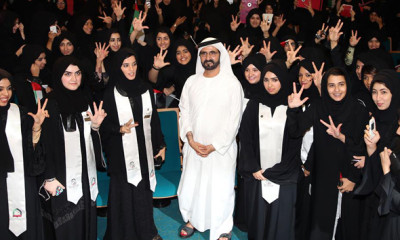
I dread the day when I wake up in the morning without anything on my to-do list. Don’t get me wrong — I love unplanned vacations and the odd lazy Saturday as much as the next cubicle dweller. But the thought of having to live the rest of my life without a meaningful goal is more than just unnerving.
Will we have to face that future upon retirement? Thankfully, one can ease into it instead of retiring cold turkey. Yes, phased retirement is a thing.
More people across the world are now choosing to phase into retirement instead of entering a complete, traditional retirement. Employers are encouraging it, too. Several companies are allowing their senior employees to cut back hours and delegate more of their responsibilities by taking on consulting and mentoring roles while still being on call when needed.
The benefits for employees — you and I — are obvious. Even though it will mean a drop in earnings, one can continue to earn enough to foot monthly bills and not dip into — if not contribute to — one’s retirement savings. At the same time, it’ll be less taxing on the body and mind – and allow you to enjoy at least some of the retirement benefits. Think about it — you’ll finally have time for family and friends, for those long walks, for your grandchildren, even making your own slow-cooker honey garlic chicken (if you’re so inclined).
But like everything else, phased retirement will need to be planned, too. For one, your employer needs to see value in it and agree to the transition. You’ll need to discuss and put a tentative ultimate retirement date down there besides working out a schedule that suits you both. There are several other steps to this exercise, too. We’ll list them for you:
- Talk to your boss

As mentioned, one of the first things will be to talk to your immediate boss (and then the HR department) about your plans. Try and arrive at a sweet spot between the schedule and workload concessions your employer may be open to offering in lieu of the monetary benefits you’re willing to
forego. Research a bit to find out if, in the past, any other employee of your organisation has retired in phases — or moved into a consulting role from full-time employment. Even if no such precedent exists, it is still important (perhaps more so) to speak with your employer about your retirement. The company will need to know if they need to find a replacement now or next year or even later.
- Talk to the family

An individual’s retirement seldom impacts just one person. More often than not, the whole family feels the impact and it is only fair that you discuss your retirement plans — phased or otherwise — with them. Discuss the timing and duration of your phases and if they need to coincide with other,
important family milestones (the graduation or marriage of your offspring, for instance). Discuss how your retirement might affect the family’s spending and lifestyle. Making your family a part of this transition will also strengthen the emotional bond you share with them.
- Manage the transition

When phasing out of your job, your company may decide to task your deputy or another employee with additional charge of your projects. Offer your full support with the transition. Discuss your major projects and any potential challenges with those replacing you, and document the meeting for
future reference. It will be professional to finish all major projects before you finally hang up the gloves. Putting together a timeline for such projects will be the ideal thing to do, as will be to keep all stakeholders formally and periodically informed of the progress.
If you are part of the family business or are self-employed, succession planning will be largely your responsibility. You may need to guide your successor — and stay involved — for a bit longer.
- Let go at work

Once the ball is set in motion, you’ll be able to go easy on your work schedule. You may need to keep the same hours initially, at least on hectic workdays. Do it gradually, in a phased manner. Cut down a few hours every quarter or so.
This will make the transition to full retirement less of a shock.
- Go over your finances with a fine toothcomb

You’ll have a rough idea, but that won’t do anymore. Check and recheck the status of your investments. Hopefully, you’ll be positively surprised at the magic that compound interest would have worked for you (and not shocked at what you may discover). Check and recheck pension schemes and
other investment options you subscribed to. Try and arrive at a conservative monthly income that you’ll derive from those instruments once the transition period is over. Be honest in deciding if that will be enough for you for a long retirement.
To be more practical, set up a two-stage retirement income plan where the initial phase includes reduced drawings from retirement and non-retirement funds — or even adding funds to them in case you can manage it. It could get overwhelming — if needed, take the help of a financial planner to ensure post-retirement financial stability.
- Lifestyle changes

Some things will change once you fully retire. Others don’t need to. Evaluate your present lifestyle and make a note if things that’ll change or remain the same once you begin your phased retirement. More free hours could mean more time spent at home (think utility bills and pantry expenses).
An unhurried commute could mean you can ditch the car/cab and take the metro. Try to keep your living expenses down.
- Ride the emotional rollercoaster
This could be one of the hardest steps. Retirement, phased or otherwise, can be emotionally stressful. The phased approach will, surely, help keep the stress levels low. Try and be upbeat about the process — after all, retirement is a reward for a lifetime of hard work.
- Finally, have fun!
It’s time to once again enjoy life as it comes. Stay active, find or revive a hobby, get back in touch with your friends and make new ones, start knocking things off your bucket list… there will be so much to do with your ‘free’ time that you may find retirement hectic yet fulfilling!































































































